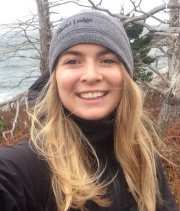Fiona Henderson

B. Sc. Honours
B.Sc. (Honours) Thesis
(PDF - 25.4 Mb)
Canada lacks a uniform method for sampling metals in urban soils, posing challenges for comparing studies and hindering the recognition of trends. Although problematic, the absence of a standard methodology is not unfounded. The extensive variability of soil properties throughout time and space makes it difficult to evaluate a study area. Methods designed to be used ubiquitously not only allow studies to be comparable, but may add to the effectiveness of environmental and health risk assessments.
This study focuses on developing a protocol for predicting and potentially mitigating elevated metals in city soils within Halifax, N.S. One aspect of the study aims to predict where high metal concentrations may arise in a city, by identifying past land use activities that are strongly associated with a particular metal(s). Another aspect of the study involves developing a preliminary urban background for the city of Halifax. A total of 96 depth-based samples at 0-5 cm and 0-15 cm sample depths were collected and evaluated through X-ray fluorescence (XRF) analysis. Of these samples, those that had metal concentrations above Canadian Council of Ministers of the Environment (CCME) guidelines were sieved to particle sizes of < 2 mm and < 0.5 mm. Comparing metal concentrations with depth and particle size determined the following results. Metal concentrations are notably higher is 0-15cm depth based samples due to leaching that is occurring with developed soil. Lead, Barium and Zinc concentrations are elevated for samples proximal to older wooden buildings, suggesting buildings act as anthropogenic point sources. Metal concentrations are elevated in finer particle sizes, however the difference is not significant due to siltier soil composition. The intent of this study is to build a foundation for determining the âbest practiceâ for assessing elevated metal concentrations in city soils.
Keywords: soil, urban soil, soil geochemistry, metals, urban background, geoavailable, bioaccessible, bioavailable
Pages: 132
Supervisor: Anne Marie Ryan



